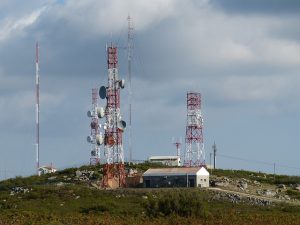KICTANet has published the 5G Policy Brief for Kenya.
The objective of this study is to establish Kenya’s preparedness to deploy fifth-generation wireless networks (5G). The study reviews the historical progression of mobile networks through to the current 5G mobile technologies. It then highlights the technical properties and use-cases that 5G technologies have under the three categories, namely, the enhanced Mobile BroadBand (eMMB), the massive Machine Type Communications (mMTC), and the ultra-Reliable Low Latency Communications (uRLLC).
The study then reviews the global 5G state of play and contrasts that with a situational analysis for Kenya. It finds that whereas the Kenyan legal, policy, and regulatory frameworks are quite advanced, there is no specific, national 5G Strategy in place. This disadvantages Kenya’s ability to attract 5G investments while hampering its ability to stake a claim within the new digital value chain commonly known as the Fourth Industrial Revolution (4IR).
The study has established that the country is still not ready to effectively deploy and benefit from 5G technologies – particularly from a strategic, policy, and regulatory perspective. It proposes practical steps that need to be taken to address this and summarises them under the following:-
- Set up a 5G Advisory Working Group: This would be preferably convened by the National Communication Secretariat (NCS) and comprise of various key stakeholders including but not limited to regulatory, operators, ICT enterprises, academia, and civil society
- Publish Harmonized 5G Spectrum Roadmaps: The 5G ecosystem of investors, operators, equipment manufacturers, and others cannot make investment decisions unless a given country’s spectrum plans are clear and published. It is therefore imperative that the regulator takes the necessary steps including spectrum refarming and reallocation in order to publish an internationally harmonized 5G Spectrum roadmap
- Adopt Affordable 5G Auction Prices: Governments have realized huge amounts of revenues from auctioning previous 2G, 3G, and 4G spectrum. However, this may not automatically apply to 5G spectrum. This is because of the high risk of investments that arise from the uncertainty, high capital expenditure, and technical complexity of 5G technologies with yet to be proven return on investment business cases. The government and the regulator may be better of offering affordable auction prices as an incentive to attract players while reducing their investment risk profile. In other words, the governments and regulators should assign 5G spectrum to support their digital connectivity goals rather than as a means of maximizing state revenues.
- Adopt a Shared 5G Spectrum and or Infrastructure: In line with the proposed Draft National Spectrum Policy (2020), the study agrees that spectrum sharing should be promoted as long as interference is controlled. This can be implemented based on geography, time, or frequency separations. Additionally, in the event there are no subscribers to the auctioned spectrum, the government may consider jointly investing in a common and shared core 5G infrastructure as a way of reducing the investment risks and
stimulating uptake. - Enforce Common Wayleave Agreements: 5G small and macro-cell configurations imply that operators will rely more heavily on public infrastructure to host network equipment. Access to road furniture, electric poles, shared ducts will become increasingly critical to 5G deployments and it will be better to centrally streamline and manage Wayleave Agreements rather than leave them open to different County-level managers who tend to have exorbitant, punitive, and prohibitive approaches to granting wayleaves to
operators.
These proposed recommendations are not expected to be prescriptive or exhaustive. They are instead designed to provide a baseline for rigorous conversations between stakeholders to determine the best way for Kenya in terms of the 5G Agenda. KICTAnet further believes this is a conversation that Kenya should have sooner rather than later to avoid the risk of missing out on the next cycle of innovations as promised by the 5G technologies.




